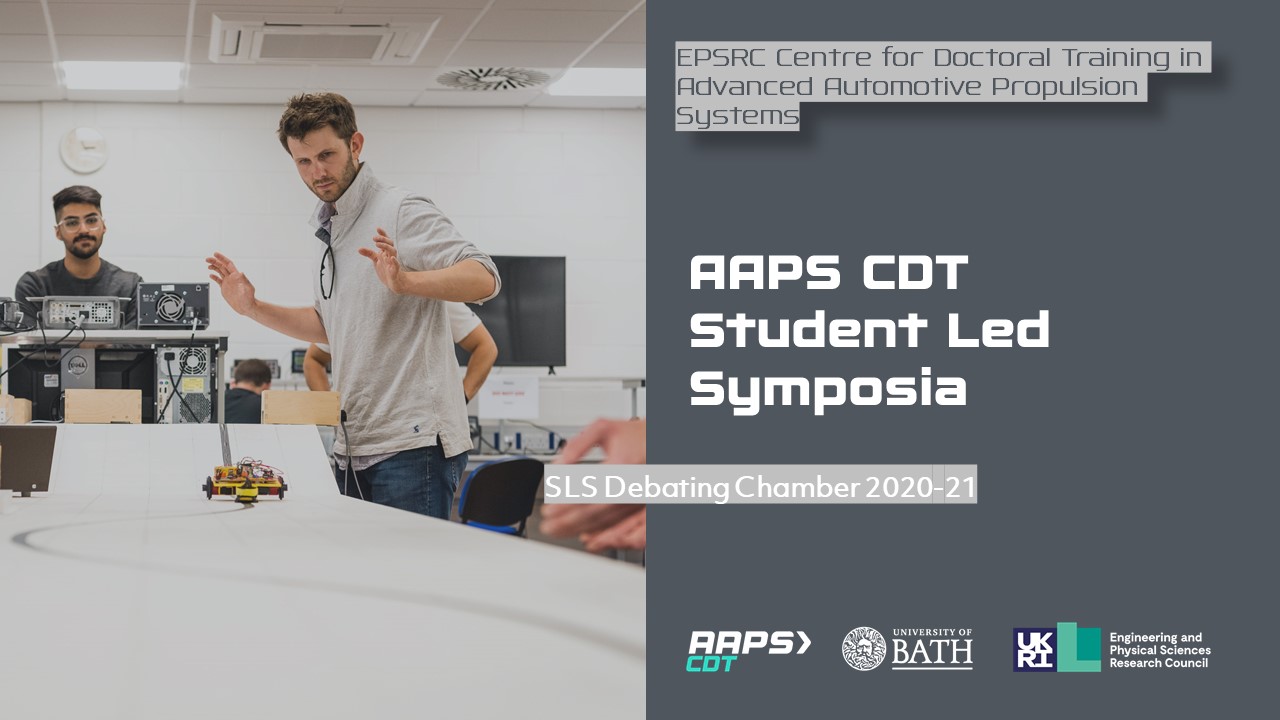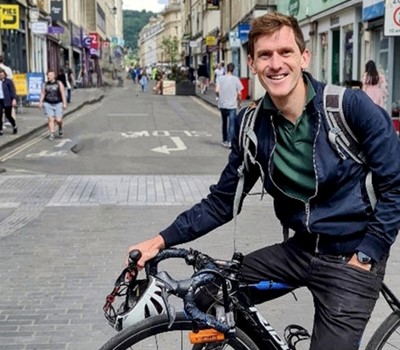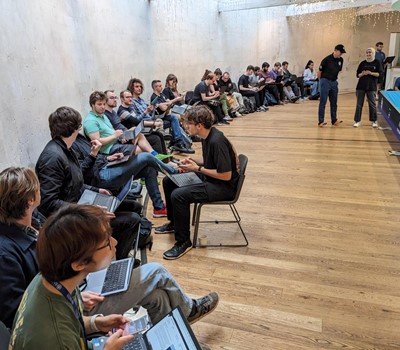July 28 2021

During the AAPS CDT MRes course, I took the opportunity to become a student representative for the SLS (Student-Led-Symposia) module. With some prior exposure to debating, I volunteered to run the ‘debating chamber’ as part of Cohort 2’s SLS activities in preparation for the recent Integrated Think Tank (ITT4), which took place in June (2021) with partner National Express.
During the sessions, we covered a range of timely and controversial topics around current and future issues facing transport, mobility, and logistics. These sessions set out to be fully inclusive, allowing anyone the opportunity to participate in debating, where they can construct and convey arguments to a respectful audience in a structured and moderated environment. Each week a motion is put forward and two teams take it in turn to debate ‘for’ and ‘against’ the motion. The audience are also encouraged to participate in the sessions and have the opportunity to vote and discuss.
Each week, a motion is put forward and teams are selected the day before the session, giving participants 24 hours to meet with their partner and prepare notes for their arguments. No more than an hour of preparation is usually required.
During the session, the motion is first put forward to the audience who will vote ‘for’ or ‘against’, giving an initial impression of which side of the debate has the most support.
The debate is divided into two sections, the ‘opening statements’ and the ‘rebuttals’. In the first section, each participant will have 5 minutes to speak, the first participant from each team makes an opening statement in turn, and then the second player from each team will make a closing statement in turn.
Following a short recess, the second section commences in the same fashion where each player will have 5 minutes to rebut the other teams’ arguments from the previous session.
At the end of the session, the motion will be put back to the audience for a final vote to gauge how well each teams’ arguments have been received.
The floor is then opened for discussion between the participants and the audience. This is a good opportunity for the participants to speak openly about the strategy they used to construct their arguments and reveal any conflicts they may have experienced if their personal beliefs are not aligned with the side they had to argue. The audience also have the opportunity to share their thoughts on the topic and comment on the team’s arguments and strategies.
In the debating chamber environment, participants have the opportunity to develop a number of skills that will be invaluable for a future career in academia and industry including critical thinking, teamwork, multitasking and public speaking.
As the motions are decided before the sessions, and participants do not choose which side they will debate for, they must be prepared to think on their feet and step outside their own sets of beliefs. Participants may disagree with the position they need to defend but pre-empting the arguments that will be raised by their opponents can allow them to develop better arguments to support their case.
For many, the idea of debating in front of an audience can be very daunting, however these sessions offer a safe and friendly space where everyone is given opportunity to speak and work as a team. This helps participants develop their confidence and public speaking abilities, as well as creative and critical thinking.
Some of the topics debated have included the effects of low traffic zones in urban areas, the challenges of integrating rentable e-scooters in public spaces, the pros and cons of future drone deliveries and the moral vs safety implications of increased monitoring of road users. The full list is below:
The motions are deliberately broad to allow anyone to participate with minimum prior knowledge and are chosen such that arguments can be made on either side. As a result, detailed and sometimes even heated discussions often followed the debate where everyone can participate and express their thoughts on the topic.
The idea of debating can be an intimidating exercise, to stand up in front of an audience and defend a motion you may have little knowledge of, or you simply do not agree with, for many is daunting. However, the SLS debating chamber has made the activity accessible to all participants, allowing them to benefit from the challenge. Through the debating chamber, participants and the audience have been able to develop a range of skills and see arguments from alternative points of view, while having lots of fun in the process.

28 February 2024

18 January 2024

29 November 2023

13 November 2023

© Copyright 2024 AAPS CDT, Centre for Doctoral Training in Advanced Automotive Propulsion Systems at the University of Bath